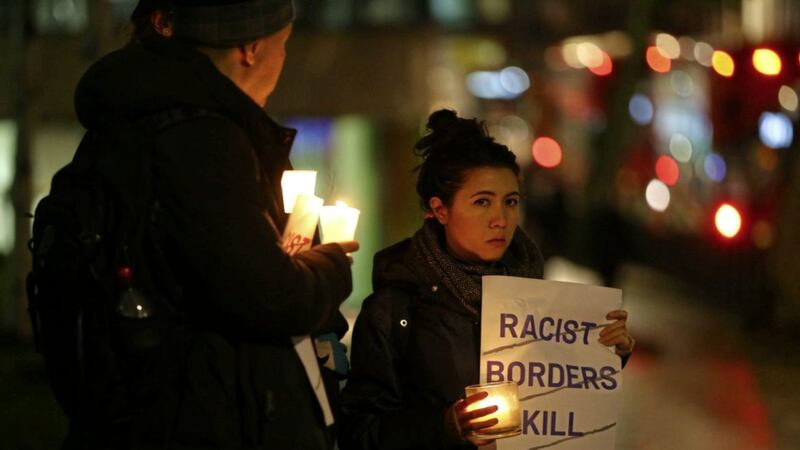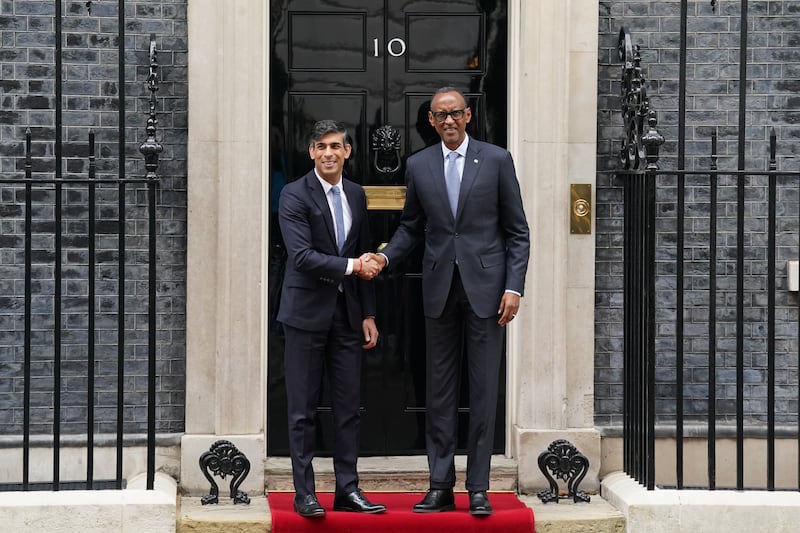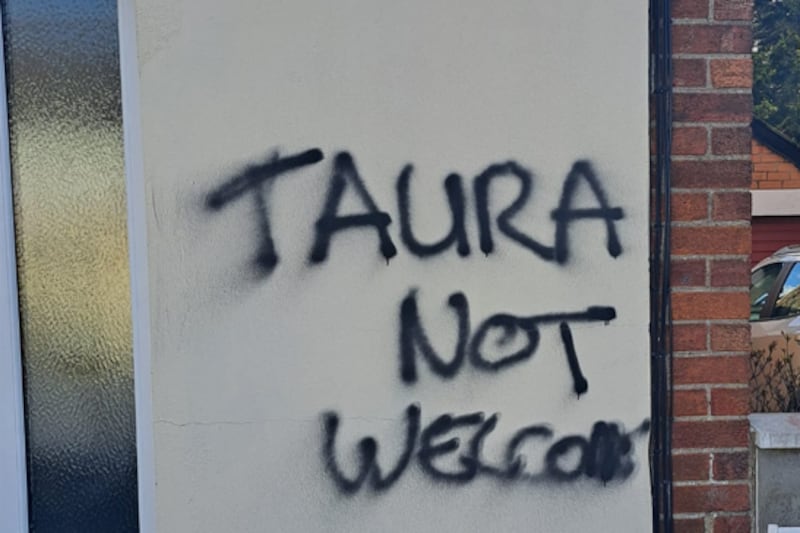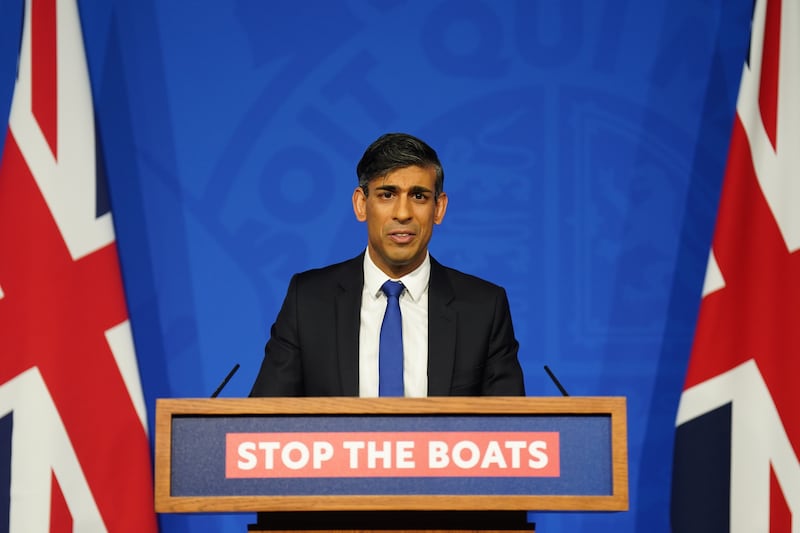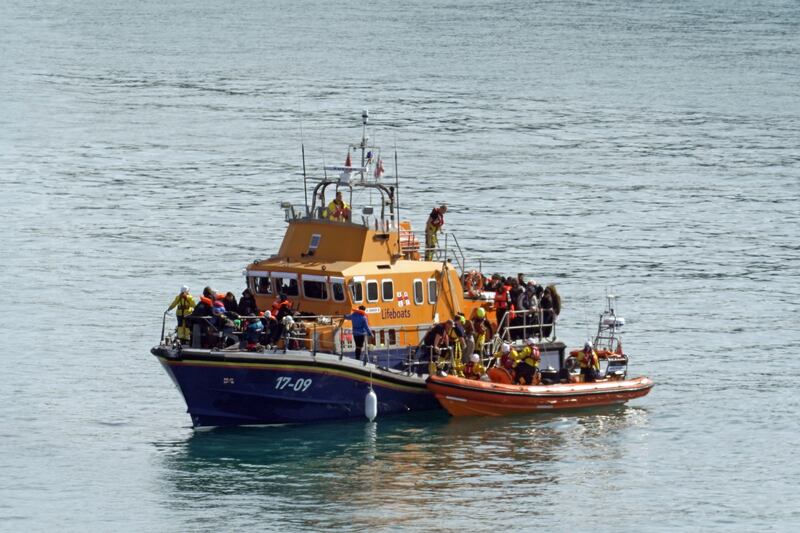SOMEONE - and the quote has been attributed to everyone from Dostoyevsky and Tolstoy to the American writer John Gardner - once said there are only two stories: a man goes on a journey, or a stranger comes to town.
Homer’s Odyssey, about Ulysses, the exiled King of Ithaca’s journey home, has frequent references to his homesickness and fears that he may never return.
The Bible is full of people leaving home to seek safety: the Israelites’ flight from Egypt into Canaan; the infant Jesus forced to flee with his family to Egypt to escape from King Herod.
The story of refugees is also the Irish story of millions of people forced to migrate with no possibility of returning home.
Why then do we seemingly find it so difficult to address the plight of refugees seeking new lives in our home?
The deaths of 39 migrants in Essex is an appalling indictment of how strict immigration systems simply don’t work.
Eight women and 31 men made an arduous journey from their homeland, only to meet their end in a freezing lorry container in a bleak industrial estate.
Almost 20 years ago, 58 Chinese nationals were found dead in a sealed, airless container at Dover port.
As Europe works to stem the flow of migrants, thousands of lives are still being lost.
Since 2014, 18,898 deaths were registered in the Mediterranean alone. Thousands of other migrants are likely to have lived and died, unrecorded, as they attempted to reach Europe. The sea Ulysses sailed for 10 years before reaching his home is the most dangerous crossing in the world.
The Irish Refugee Council, which deals every day with migrants trying to make new homes for themselves in the Republic, warned that, as governments attempt to shut down migration routes and fences and walls go up across Europe, “people are finding new ways and methods to reach places of safety”.
It said that until safe and legal routes are opened up for people seeking freedom from persecution or a new future - including more humanitarian visas and an increase in the numbers of refugees allowed to remain in Europe under relocation and resettlement schemes - migrants will continue to make difficult journeys.
“No person should find themselves in a situation where they feel that their only choice is to pay smugglers to transport them on dangerous and arduous journeys with no guarantees for their safety or how their journey might end,” it said.
In the UK, there is no sign of any relaxation of immigration restrictions.
Earlier this month, Home Secretary Priti Patel was feted at the Conservative Party conference for her announcement of a new hardline immigration policy under Prime Minister Boris Johnson.
She announced the introduction of an Australian-style 'points system' which favours skilled, English-speaking migrants.
Ms Patel claimed that the new policy “under the control of the British Government” will welcome “brilliant scientists, the finest academics and leading people in their fields”.
The 39 who died in Essex were unlikely to have been granted status under Ms Patel's new rules.
Many illegal immigrants from East Asia are lured to Europe on the promise of a legitimate, but relatively unskilled, job. Only when they arrive, does it become clear that this employment is either forced labour or sex work in brothels.
Initial police reports indicated the 39 dead were from China, although other reports suggested at least one of the victims may be from Vietnam.
Last year, the government's annual report on modern slavery found China was the fourth most common country of origin for slavery victims in the UK.
Vietnam was the country with the third highest number of suspected victims of modern slavery.
There are only two stories: the journey or the arrival of a stranger. These 39 migrants made the torturous journey but did not survive to see its end.
It's right that we mourn those 39 lives cut short and the devastating impact their deaths will have on their families and loved ones. But it truly honour them, we must have an immigration policy, post-Brexit, which shows compassion to vulnerable, desperate people far from home.
